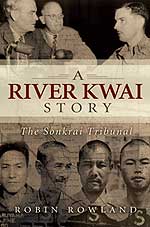Which brings me to Ernest Hemingway's lost blog (or what would have been a blog if there had been a computerized world when "Papa" was writing.)
Most people know about Hemingway's famous lost short stories. In 1923, Hemingway's first wife, Hadley Richardson, was travelling from Paris to Lausanne to meet Hemingway and as she was waiting for a train at the Gare de Lyon, the suitcase with the stories was stolen from the station platform and so the stories were lost to literature and history. (Make a backup Ernest! Use carbon paper!)
The other lost work by Ernest Hemingway is less well known, his resignation letter from the Toronto Star. According to a number of Star histories, when Hemingway got fed up and decided to quit, he wrote a eloquent denunciation of The Star and its management on a long piece of paper taken from a teletype roll. (anticipating Jack Kerouac's method in On the Road by 30 years).
Imagine what it would have been like then if Hemingway had blogged? Now since it was a resignation letter, it wouldn't have broken any employee's blog restrictions, but that work, either on a blog or on teletype paper, would have likely have been the one the great documents in the history of journalism.
Hemingway apparently pinned the long sheet of teletype paper to a Star bulletin board and it remained there for months, and the staff kept reading it, loving it (one wonders what Star management thought) until one day it fall to the floor and was was swept up by the cleaning staff and ended up in a Toronto landfill.
I have had this website since December 26, 1999 (the date I registered robinrowland.com). It was created to promote my books and to put up the course outline and hints for my students when I taught at Ryerson University of School of Journalism. At that time, a few CBC employees had personal sites and when I started the site there was no objection, in fact I was told it was a great idea.
I posted my first blog entry on October 18, 2004, to track and promote the book I was writing at the time now called A River Kwai Story. Again, at the time, I was told it was a great idea.
Except of the time during the lockout, I have kept my blog tightly focused on my book project and on my photography along with occasional personal stuff.
But what do these guidelines say? That I can't talk about the brands of cameras I use, developments in the world of digital photography or the quality of my photo quality ink jet printer? As I do here and here and here and here. Is that endorsing (or not) a product?
A River Kwai Story is based on my academic research for my Master's Degree and it's about the history of war crimes and military tribunals. It could be, in some circles, be considered controversial. Does that mean CBC employees can't write controversial books--even if the work has done completely on their own time and has nothing to do what happens inside the corporation? (And for the record, stories based on my research have been offered to CBC News from time to time)
Which brings me back to Ernest Hemingway. If he was writing today, Hemingway would have to have a blog to promote his books, it is an absolute necessity in the 21st Century. Hemingway would have had to have a blog whether he worked for The Star or was an independent freelancer. I am sure Hemingway would use a blog as an outlet for his talents and ideas that might now, in the modern world of beancounting publishing, have no other outlet, even if the name of the author is Ernest Hemingway.
The problem is that most of the CBC employees who openly blog under their own names have been known from before the lockout. A year ago some of us issued the CBC Blogging Manifesto and signed our names to that document. It would have been easy to call a meeting and discuss these guidelines with the bloggers. I wasn't consulted and as far as I know, no other blogger was either.
Paul has quoted what the late CBC Ombudsman David Bazay said about blogging
If public broadcasters are to become bloggers I would hope that they would exercise their freedom of speech exactly the way they are compelled to exercise it within the CBC: with accuracy, fairness and integrity, with the responsible speech of CBC’s Journalistic Standards and Practices that has helped make this place one of the great places in the world where the citizen can be well informed.
I thought at the time that Bazay was right on and I have followed those guidelines.
If any corporation anywhere, respects its employees, that is all that is needed.
Technorati tags
writing, journalism,book, blog,blogging,
Labels: A River Kwai Story, blogging, CBC, Ernest Hemingway, news, publishing, research, Toronto Star, writing




